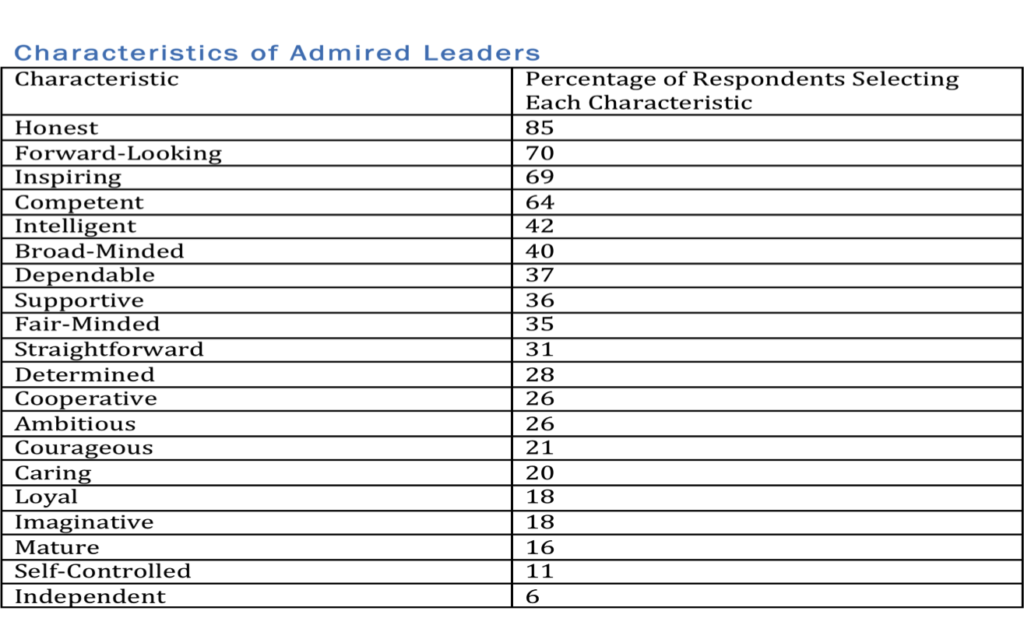Podcast: Play in new window | Download (Duration: 23:22 — 21.4MB) | Embed
In a 2009 international survey, the majority of people said they trust a stranger more than they trust their boss.
Think about the implication of this data point and what it means if you are in a leadership position. It means there is a good chance the people you lead are more likely to trust someone who walked by them on the way to work.
Secondly think about the issue of credibility. Credibility is the foundation of leadership and trustworthiness is the essential component of credibility. This implies that if people cannot trust you, they will not believe you!
Thirdly think about what this means for the organizations. HIGH TRUST organizations outperform low trust organizations by 286% according to a PricewaterhouseCooper study.
The bottom line: Trust rules your personal credibility!
Consider these four (4) insights on becoming a trustworthy leader.
Increase Your Trust, Increase Your Influence
Research has become quite clear that the level of trust that followers are willing to give a leader determines the amount of influence they willingly accept. This research reveals that “high trust” led to greater acceptance of group member interdependence, more cooperation, and enhanced information flow among group members. Even in strong command and control environments trust comes first and following comes second.
There is a direct relationship between trust and risk. When people feel secure, because they trust that you and the organization will protect their welfare, they can focus their energies on meeting higher expectations that challenges the boundaries of a company.
You Have To Ante Up First
Trust is the framework that supports all relationships. Building a structure of trust begins with the leader at the top. You have to ante up first! This can be intimidating because you are putting yourself into other peoples hands and trusting them to care for you. You are taking a risk that the other party will not take advantage of you. You are relying on them to do what is right. There is no guarantee that if you go first that the other party will reciprocate.
You Have To Show That You Can Be Trusted
You have to demonstrate to others that you have both the character and the ability to do your job and to look out for their welfare. Here are four steps to follow:
Behave predictably and consistently Communicate Clearly
Treat promises seriously Be forthright and candid
Communicate With A Need-To-Share Mentality
In the book Building The High Trust Organization, the authors discuss the need to replace the “need-to-know” mentality with a “need-to-share” approach because it fosters an environment of trust within the organization. When this happens “distrust” is mitigated and followers feel more attached. Your role as a leader is to make sure that people have the necessary information when they want it and need it. Distrust replaces trust when there is a feeling that information is always late or purposefully being withheld. Here is an important leadership axiom: When there is an information vacuum, people will make up their own answers. These made-up answers will likely become negative and cynical versus truthfulness.
LINKS
Shepherds Advantage Leadership Podcast is now on iTunes – SUBSCRIBE
Shepherds Advantage Leadership Podcast is now on Stitcher – SUBSCRIBE
FREE GIFT – “The Art of Balancing Candor With Care” – Click on the icon at the bottom of the page
Executive Coaching Service– Private message me for details on this customizable service
Music: “Gratitude Mood” by David Arivett. You can learn more about his music by clicking on his name. THANKS DAVID!
A Journey Toward Significance – Take The SEVEN DAY CHALLENGE





